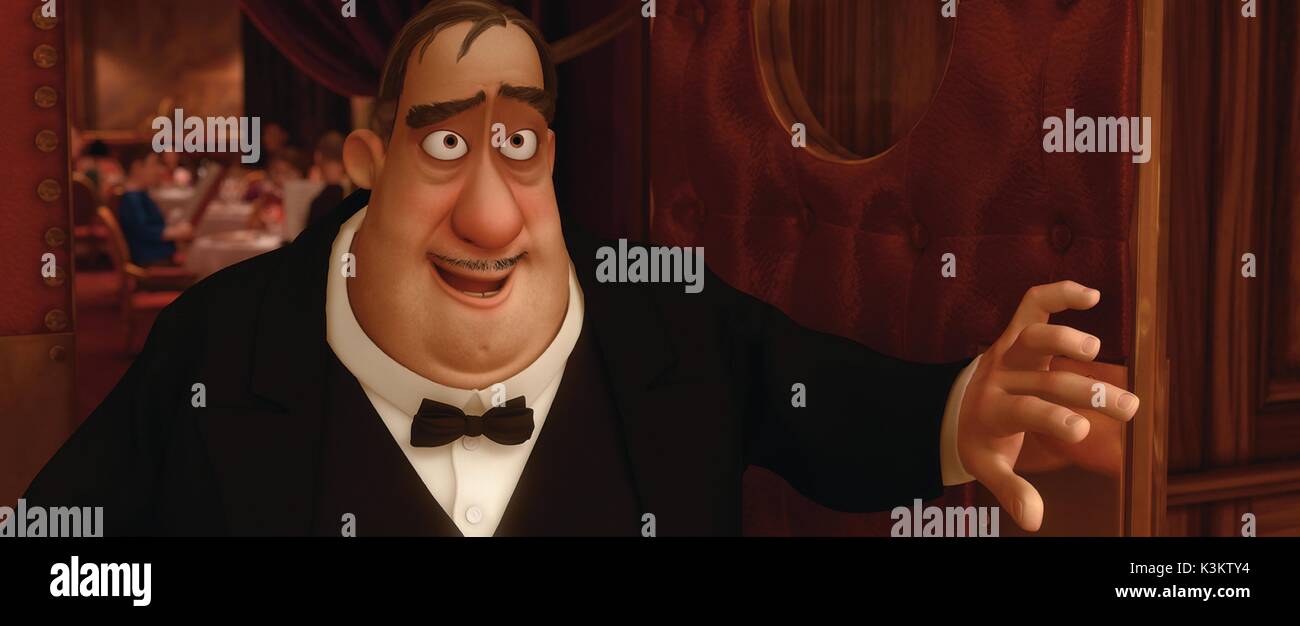
Alfredo Linguini, as well as humanity, is consciousness. The city is where Remy then meets humanity, and most importantly, where Remy meets Alfredo Linguini. Rats live in the realm of the unconscious-the sewer, and sometimes, like at the beginning of the movie, ascend into the realm of consciousness: the city. Rats are perhaps one of, if not the most Dionysian force in cities.
#Ratatouille movie gusteau movie
In civilization, especially in a city like Paris where the movie takes place, unconsciousness and the Dionysian forces of nature-like rats-are constantly oppressed in favor of consciousness and order. Those three things are deeply connected to each other because unconsciousness and imagination are in a constant war with consciousness and the Apollonian will and as a result often find themselves oppressed. Rats, and especially Remy, represent imagination, the unconscious, and the oppressed. This lesson is articulated through the relationship between Remy and Alfredo Linguini, Gusteau’s son who has the inherited right to Gusteau’s restaurant. Or in other words, let your heart guide you and both your dreams will come true, and you will become virtuous. The lesson is essentially this: let your heart, imagination, or the unconscious guide you, and you will become a great cook. The central lesson of Ratatouille comes from Romanticism and thus from Rousseau. But alas, in this conversation, Remy gets the last word because that is the point of view that the movie is pushing onto the viewer.

We all are born with a terribly resentful and prejudiced part of us that can only be stifled by truth and civilization. In other words, Remy thinks that “Anyone can cook,” while Django thinks that anyone can be an Auschwitz guard. Django thinks nature is evil and impenetrable of societal efforts to change it, while Remy thinks nature is good and can be changed through societal means. You can’t change nature.” Remy: “Change is nature, dad, the part we can influence and it starts when we decide.” This argument is the perfect example of an argument between a Hobbesian and a Rousseauian. Then the following dialogue between Django and Remy takes place: Django: “This is the way things are. Django shows this to Remy convince him that nature is permanent and that humans are dangerous, and should not be trusted. This point of view is most blatantly said when Remy’s father, Django brings Remy to a store window that has dead rats hanging on mousetraps. That then begs the following question: if anyone can cook, then why can’t some? In other words, if anyone can be virtuous, then why aren’t some people? The movie’s answer to this is the same as Rousseau’s-society corrupts people into being bad. Cooking in the phrase “Anyone can cook” is a metaphor for competence, virtue, and generally a productive member of society.

#Ratatouille movie gusteau free
The phrase echoes enlightenment phrases like “We hold these truths to be self-evident, that all men are created equal,” “ liberté, égalité, fraternité,” and especially the famous quote said by Jean-Jacques Rousseau: “ Man is born free and everywhere he is in chains.” All of these phrases, lesser so the one in the Declaration of Independence, implies a belief that human nature is mutable and at its core-good. This statement alone: “Anyone can cook” can easily sum up the philosophy of the deceased owner of the restaurant: Auguste Gusteau and the movie as a whole. The movie is also rife with romantic platitudes like “Anyone can cook,” and is filled with terrible excuses for lessons throughout.

Children don’t need to watch an entire hour or so of theatrics and quickly moving pictures to learn that stealing is bad. A lesson children could learn from their parents. The movie is empty of any moral or practical life lessons-other than stealing is bad. But even though this Pixar favorite spreads plenty of optimism while telling an extraordinary under-rodent story, there are plenty of aspects a young audience might miss - and here are things only adults notice in Ratatouille.Pixar’s movie Ratatouille is Rousseauian propaganda of the highest order. This magical rat (after all, he can understand humans, is lauded for his smelling abilities, and can cook) not only changes his own life, but he betters the lives of his family and friends, such as Alfredo Linguini and Colette Tatou. Remy is far different from his family, as his four-legged companions eat for sustenance and Remy eats for taste, pleasure, and passion.

Even if you get over the fact that rats can't follow their dreams, rodents are a nightmare scenario for restaurant owners. But against all odds, Remy relocates to Paris and becomes a magician in the kitchen, teaching audiences that a great artist can come from anywhere. And yeah, that's an incredibly strange plot. Set in Paris, Ratatouille focuses on a rat named Remy who follows his dreams of becoming a chef. Ratatouille manages to take an odd tale and spread a beautiful message.


 0 kommentar(er)
0 kommentar(er)
